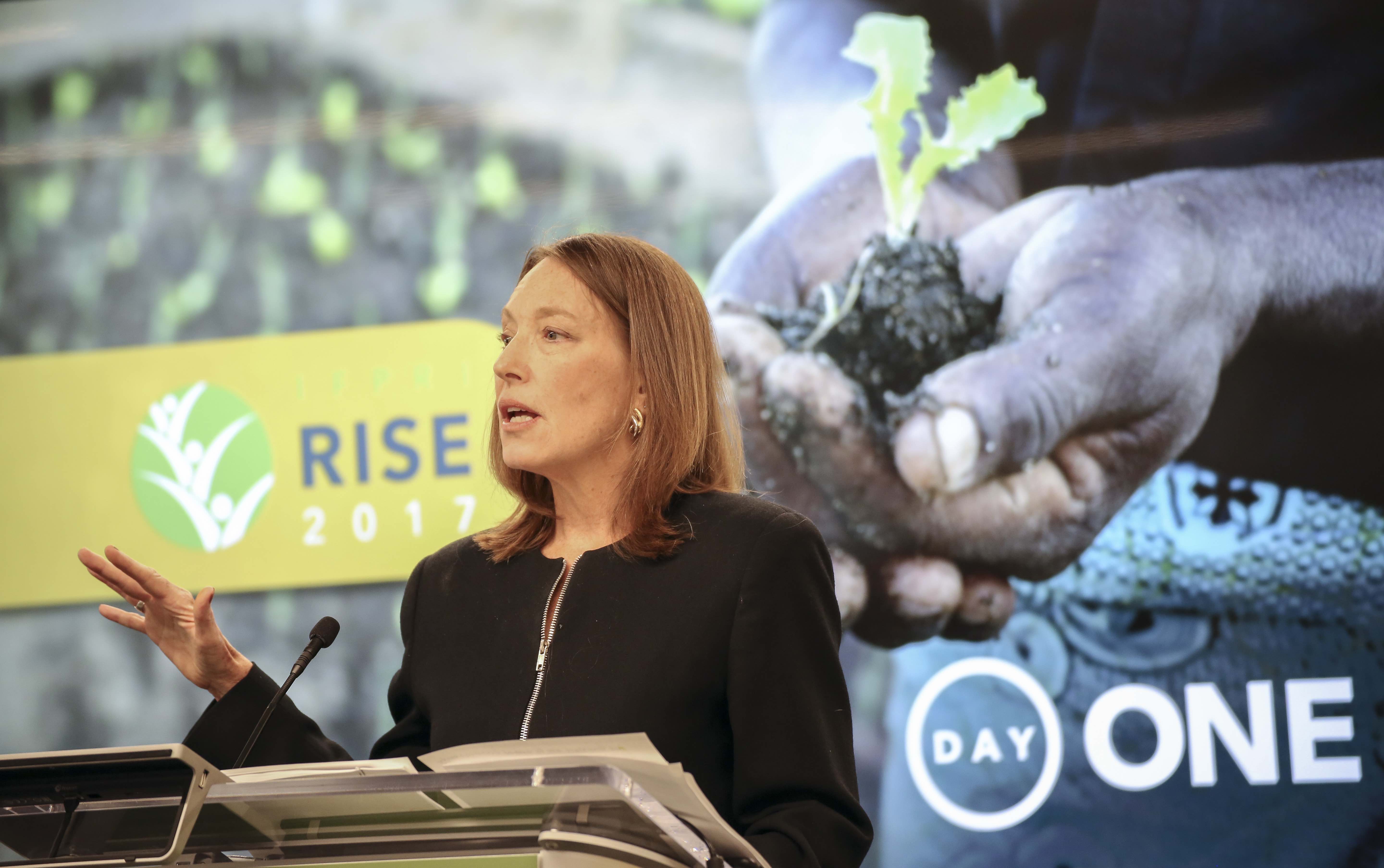What does a warehouse full of sheet cake in Washington, D.C. have to do with IFPRI’s mission to help the world’s poorest and hungriest people through policy research? According to Nancy Roman, President and CEO of the Partnership for a Healthier America, it is just one of many examples of how a policy decision with good intentions can miss the root problems of hunger and malnutrition: A food bank’s decision to limit distribution of processed food to its clients led to an excess supply of sugary snacks from well-meaning donors. Roman’s example—shared during her keynote address at IFPRI’s staff retreat on September 12—shed light on the need to rethink approaches to urban hunger and malnutrition in a rapidly urbanizing world.
Food banks serve 14 percent of the U.S. population, but have failed to address the core problem of urban hunger and malnutrition. “In America, hunger doesn’t show up as a calorie deficit,” Roman said. “The issue is not just lack of food. It is lack of access to nutritious food like fruits and vegetables … and it is excess supply of processed foods with added sugar and high levels of sodium.”
Under Roman’s leadership from 2013 to 2017, the Capital Area Food Bank took on this challenge by improving its food inventory and working with its clients to form good food habits. But food banks and the emergency food system in America typically meet only 15 percent of the needs of the food insecure; the remaining 85 percent comes from federal assistance programs and from the pockets of the poor, money used to purchase food directly, at retail grocers—or often, fast food restaurants. Unhealthy processed foods are still the cheapest, most available option and highly marketed.
Broader systems changes are needed to effectively address food insecurity without adding to the burden of obesity and noncommunicable diseases, Roman suggested, and corporations have the power to affect the broadest change on our food supply. Hunger relief work “supplements our urban food ecosystem that is determined by restaurants, fast food, and grocers,” she said, and it is critical to work with businesses as partners for a mutual solution. Public sector and civil society organizations working in the hunger relief space—including research institutions such as IFPRI—must engage with the private sector to achieve food security and nutrition in America and beyond.
Emily Cho is a Senior Research Assistant, Laura Zseleczky is a Research Analyst, and Chris Rue is a Senior Research Analyst in IFPRI’s Director General’s Office.







